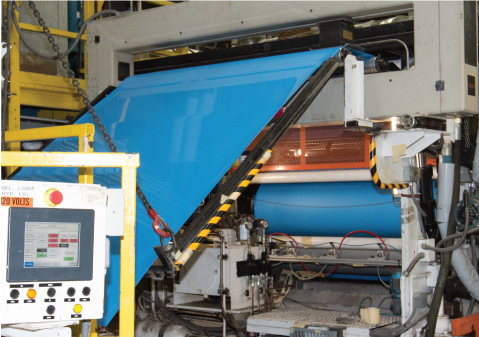Bixby’s Research and Development team has small pilot scale extrusion capabilities. This lab extruder is key in generating proof of concept thermoplastic extrusions for our clients, and this service can be delivered quickly and is modestly priced. Depending upon the contractual relationship with our client, this work is billed as time plus materials. Our minimum unit of time is an 8-hour day which includes set-up and tear down.

For the day, depending on the complexity of the prototypes or evaluations to be done, the cost for the time is between $1250 and $2500 per day. If we have to purchase materials for the prototypes, we ask our client to cover the cost of materials. If we can obtain free sample material, we do not charge for the materials. Owing to the longstanding relationships we have with our suppliers, we can often obtain samples free of charge, especially for initial Proof of Concept evaluations. As budgeting for the project is being developed, a conservative estimate of the costs for this stage should include the cost of materials.
Pilot line work usually can be done with less than 50 pounds of polymer(s). In a typical lab day, we can run through several variations of products such as gauges, material combinations, and additives. In a single pilot line day, a great deal of information regarding different variables and constructions can be determined. Our clients value this inexpensive and extremely fast service to vet differing proofs of concept and to narrow the solution space.
With the first iteration, different failure modes can be tested and that feedback is used to develop the next iteration of samples. Generally, within a few iterations, we are able to have a construction that is approved by our client and we have sufficient information to proceed to the next phase. A conservative assumption is that this pilot phase, requiring three lab-day iterations, will likely cost less than $10,000.
What do you get for this cost?
- Several variations of possible prototypes to evaluate the best solution – generally, within three iterations, the project is ready to move to the next stage
- An accurate idea of the construction required to meet the performance criteria of the application
- Sufficient samples of the product to do preliminary screening and qualification testing
- Test data from Bixby lab (Generally, we do not have additional charges for testing that we can do in-house)
- Consulting from our world-class Research and Development team with expertise in materials construction and applications
- Extensive experience in scale-up expertise and planning
What do you get for this cost?
- Several variations of possible prototypes to evaluate the best solution – generally, within three iterations, the project is ready to move to the next stage
- An accurate idea of the construction required to meet the performance criteria of the application
- Sufficient samples of the product to do preliminary screening and qualification testing
- Test data from Bixby lab (Generally, we do not have additional charges for testing that we can do in-house)
- Consulting from our world-class Research and Development team with expertise in materials construction and applications
- Extensive experience in scale-up expertise and planning
How long does it take to get through the prototyping phase?
Our pilot line is being utilized every day, and our Research and Development team is very focused on speed of response. As a result, if the raw materials are readily available, we can have samples produced and shipped to our clients within two weeks. Some raw materials may have longer lead times, especially in small lab quantities, and therefore the timing might take longer in some cases. At the beginning of the project, we can communicate an accurate timeline. This two-week turnaround time is also applicable for subsequent iterations that may be required. Depending on how long the qualification testing will take at our client’s facility, a project can move through this concept/prototype phase within two to three months if it requires three iterations of samples.

